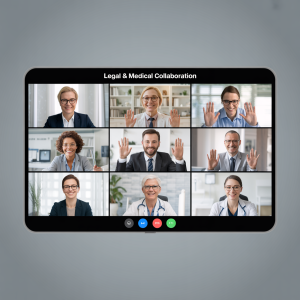If you’re a medical expert witness, you already know that your reputation is everything. Attorneys rely on your knowledge, credibility, and communication skills. But in today’s world, being good at what you do isn’t enough. You also need to be visible.
That’s where social media comes in.
Medical expert witness marketing has shifted online. More attorneys and law firms are using social platforms to find and vet expert witnesses. If you’re not showing up where they’re looking, you’re missing opportunities.
This article will walk you through how to build your medical expert witness brand using social media—without being pushy or unprofessional.

Understanding Medical Expert Witness Marketing
Defining the Niche
Medical expert witnesses are licensed professionals—doctors, specialists, and healthcare providers—who use their expertise to help legal teams understand medical facts. Their insights can make or break a case.
But marketing in this niche is different. You’re not selling a product. You’re positioning your professional integrity and expertise.
You’re marketing trust.
Why Traditional Marketing Falls Short
Many expert witnesses think they just need a CV and a referral or two. But traditional approaches like word-of-mouth or directory listings are no longer enough.
Here’s why:
Traditional Method | Why It Falls Short |
Word of Mouth | Limited reach, hard to scale |
Legal Directories | Passive, not personalized |
Cold Emails | Often ignored or flagged as spam |
Conferences | High cost, limited exposure |
Social media allows you to actively control your narrative, share your knowledge, and connect directly with the people who need your expertise.
Choosing the Right Social Media Platforms
You don’t need to be on every platform. Focus on the ones where legal professionals already spend time.
LinkedIn: The Go-To for Professional Visibility
This is your #1 platform. Attorneys, paralegals, and legal marketers are active here.
Creating a Compelling Profile
Your profile should read like a mix between a strong CV and a trustworthy brand intro.
Checklist for a standout LinkedIn profile:
Professional headshot
Headline: “Board-Certified Neurologist | Medical Expert Witness”
About section: Brief summary of experience and expertise
Experience: List prior consulting or expert witness roles
Featured: Articles, interviews, presentations
Skills & Endorsements: Highlight relevant specialties
Recommendations: Ask attorneys for endorsements
Building a Network of Attorneys and Legal Professionals
- Connect with attorneys you’ve worked with
- Follow legal firms and court reporters
- Engage with posts from legal communities
Consistency is key. A profile with regular activity stands out more than a static one.
X (Formerly Twitter): Sharing Case-Relevant Insights
Twitter (now X) is great for staying in conversations around law, health, and policy.
Posting Updates on Healthcare and Legal Topics
Keep it professional, but don’t be afraid to have a voice. Share:
- Medical news that relates to legal cases
- Commentary on landmark rulings involving medical testimony
- Articles about expert witness strategy
Using Hashtags to Get Discovered
Examples of effective hashtags:
- #ExpertWitness
- #MedicalLegal
- #MedMal
- #LawTwitter
Use 2–3 relevant hashtags per post to increase visibility without looking spammy.
YouTube and Video-Based Content
If you’re comfortable on camera, video is powerful.
Positioning Yourself as an Authority
Short videos build instant trust. You can:
- Explain what makes a good expert witness
- Answer common attorney questions
- Share tips on preparing for deposition
Sample Topics for Your Channel
Video Topic | Purpose |
“What Is a Medical Expert Witness?” | Educate and establish authority |
“3 Things Lawyers Want From Experts” | Show your understanding of legal needs |
“Deposition Tips for Medical Experts” | Share value and build trust |
Video content also boosts your SEO, making your name easier to find on Google.
Building Authority Through Content
When it comes to medical expert witness marketing, content is your best friend.
Why? Because it shows attorneys how you think, how well you communicate, and what kind of expert you are—before they ever reach out to you.
Let’s look at simple but powerful ways to build authority.
Thought Leadership Strategies
Thought leadership doesn’t mean writing a book or speaking at conferences (though those help). It starts with something much easier:
Share what you know.
You can start by:
- Posting your thoughts on recent legal-medical news
- Sharing commentary on court rulings involving expert testimony
- Offering quick tips on working with expert witnesses
Example LinkedIn post:
“Attorneys often ask how to make the most of expert testimony. Tip: Include us early in your case review—not after discovery closes. We can spot things you might miss. #ExpertWitness #LegalTips”
That’s it. No sales pitch. Just value.
Try posting once or twice a week. Over time, people will come to see you as an expert they can trust.
Case Study Storytelling
Nothing builds credibility like real-world examples. Of course, you can’t disclose private details—but you can share anonymized stories in case studies for medical expert testimony.
What to Share:
- The type of case (e.g., orthopedic injury, misdiagnosis)
- What you were asked to do
- A problem you helped solve
- The impact your insight had on the case
Here’s a sample format:
Element | Example |
Case Type | Personal injury involving spinal fracture |
Role | Reviewed imaging and surgical notes |
Challenge | Conflicting opinions from treating physicians |
Contribution | Clarified injury timeline; supported causation argument |
Result | Helped defense reach favorable settlement |
These stories make your value real to the reader. And they build trust, fast.
Leveraging Testimonials (Ethically)
Testimonials can be tricky for medical professionals. But there are ethical, low-risk ways to share praise.
Options to Consider:
- LinkedIn Recommendations
Ask attorneys or peers to leave short endorsements directly on your profile. - Quoting Feedback (with permission)
Example:
“Dr. Smith’s expert report was a game-changer for our case.” —Trial Attorney, Nevada - Generalized Praise
If direct quotes aren’t an option, summarize:
“Attorneys often tell me my concise reports help them prep stronger cases.”
Always respect privacy. When in doubt, leave names and firm details out.

Engaging with Your Target Audience
You’re not just posting into the void. You’re speaking to real people—attorneys, paralegals, legal consultants—who need what you offer.
Let’s make sure you’re reaching them.
Identifying Who You Want to Reach
Start by defining your ideal audience. Think about:
- Trial attorneys who handle personal injury or malpractice cases
- Insurance defense firms
- Legal nurse consultants and case managers
- Expert witness directories and agencies
Each group has different needs. Tailor your message accordingly.
For example:
- A plaintiff’s attorney wants to know you can explain injuries to a jury
- A defense firm needs someone who can handle cross-examination pressure
Speak to those needs in your content.
Interaction Tips
You don’t need to be online all day. But engaging when you are makes a huge difference.
Here’s how:
- Comment thoughtfully on others’ posts
- Join LinkedIn or Facebook groups for legal professionals
- Tag relevant professionals when sharing helpful articles
- Answer questions or add insight in discussions
This isn’t just networking. It’s relationship-building.
And when someone in your network needs an expert—they’ll think of you first.
Consistency and Compliance
Let’s talk about two things that can make or break your strategy: consistency and compliance.
Establishing a Posting Schedule
You don’t need to post every day. You just need to show up regularly.
Start with this simple schedule:
Day | Action |
Monday | Share a quick case insight |
Wednesday | Comment on a legal post |
Friday | Post a relevant article or tip |
Use a calendar or reminder app if needed. It only takes 10–15 minutes per session.
The goal? Stay on your audience’s radar without overwhelming them—or yourself.
Balancing Educational vs Promotional Content
No one likes a constant sales pitch.
Try this mix:
- 70% helpful content (tips, insights, news)
- 20% engagement (comments, replies, shares)
- 10% promotional (services, availability)
This builds credibility while gently reminding people what you offer.
Staying Within Ethical Boundaries
Important reminder: Always protect patient privacy and stay compliant with HIPAA.
Avoid:
- Sharing identifiable patient details
- Making promises about case outcomes
- Posting anything you wouldn’t say in court
When in doubt, keep it professional. You’re building a brand and preserving your reputation.
Measuring Success and Making Improvements
You don’t need fancy software to know what’s working.
Social Media KPIs to Track
Start by watching these numbers:
- Profile Views – Are more attorneys checking you out?
- Post Engagement – Likes, comments, shares
- Connections – Are legal professionals adding you?
- Direct Messages – Are you getting inquiries?
- Website Clicks – If you link to your CV or site
Track progress monthly. Set small goals. Celebrate wins.
Adjusting Based on Feedback
Some posts will do great. Others will flop. That’s normal.
Here’s how to learn and improve:
- Which topics get the most comments or clicks?
- What tone seems to resonate—formal or conversational?
- Are certain platforms performing better for you?
Double down on what works. Drop what doesn’t. Keep evolving.
Breaking It All Down
Social media isn’t just for influencers or big brands. It’s one of the most powerful tools you have to grow your medical expert witness brand—and do it in a way that feels natural and professional.
You’re not trying to become a celebrity. You’re trying to be visible, trustworthy, and top of mind when attorneys need a medical expert witness.
Let’s recap the key steps:
What You’ve Learned
Area | Action to Take |
Platform Choice | Focus on LinkedIn, X (Twitter), and YouTube |
Content Strategy | Share tips, cases (anonymized), and insights |
Engagement | Interact with attorneys and legal groups |
Posting Schedule | Keep it simple and consistent |
Ethical Boundaries | Protect privacy, stay professional |
Tracking & Tweaking | Watch engagement and improve over time |
You don’t have to do everything all at once. Start small.
- Post a comment on LinkedIn this week.
- Share a short article next week.
- Record a quick video if you feel brave.
Over time, your network grows. Your authority builds. And your brand speaks for itself—before you ever get on a call.
Final Thought
Attorneys are looking for experts they can trust. Help them find you.
Social media makes it easier than ever.
You’ve already built the expertise. Now it’s time to build the visibility that matches it.
Frequently Asked Questions
Do I need to hire a marketing agency to promote myself as a medical expert witness?
Not necessarily. Many expert witnesses build a strong presence on their own using platforms like LinkedIn and YouTube. However, if you’re short on time or want help crafting your brand, hiring an agency with experience in medical-legal marketing can accelerate your results.
Is it okay to share articles or news stories that touch on controversial legal or medical issues?
Yes, as long as your tone remains neutral and professional. Offering balanced commentary on current events can position you as thoughtful and well-informed. Just avoid taking extreme stances that could compromise your appearance of impartiality in court.
What if I don’t like being on camera—can I still be successful on social media?
Absolutely. While video is powerful, it’s not essential. You can focus on written posts, articles, slideshows, and infographics. Choose formats that play to your strengths. A well-written LinkedIn article can carry just as much authority as a video.
How do I keep my personal and professional profiles separate?
Use separate accounts if needed. On LinkedIn, keep everything professional. On other platforms, consider adjusting privacy settings or creating a dedicated business account. Make sure your public-facing content aligns with the expert image you want to project.
Can I talk about my credentials or case experience without sounding boastful?
Yes. Frame your experience as part of a helpful narrative. For example: “In a recent case, I helped clarify the timing of an injury, which assisted both sides in understanding the claim.” Keep the focus on how your knowledge adds value—not just your accolades.
Should I pay for social media ads to promote my expert witness services?
It’s not required to promote medical expert witness services, but it can help if you’re targeting a specific legal niche or geographic region. LinkedIn ads, for example, can target attorneys by job title or firm. Just be sure your ad content remains professional and ethically compliant.
What should I do if I get negative comments on a post?
Respond calmly and professionally—if you respond at all. Often, it’s better to ignore or hide irrelevant or inflammatory comments. If the feedback is valid, thank the person and clarify your point respectfully. Your response says more about your credibility than the comment itself.
How can I balance my clinical work and expert witness marketing efforts?
Batch your social media activity. Set aside one hour a week to write a post, share a link, or engage with comments. Use scheduling tools like Buffer or Hootsuite to post automatically, so you stay active without daily effort.
Is it okay to mention past law firms I’ve worked with in my content?
Only if you have explicit permission. Most attorneys and firms prefer discretion. If you want to mention a positive experience, keep it general unless you’ve been authorized to use names or details publicly.
How long does it take to see results from social media marketing as an expert witness?
It varies. Some experts start getting inquiries within a few weeks; others may take months. Consistency, clarity, and connection-building are what lead to long-term success. Think of it as planting seeds for future referrals.
What should I avoid doing on social media as a medical expert witness?
Avoid engaging in arguments, posting anything political or polarizing, sharing patient-related stories without full de-identification, and using slang or unprofessional language. When in doubt, imagine how your post would look if presented in court.
Offsite Resources
SEAK, Inc.
Provides expert witness directories, marketing courses, and training seminars specifically designed for medical and legal experts.
National Association of Medical Examiners (NAME)
Ideal for forensic and pathology-based experts. This site offers professional resources, education, and connection to relevant communities.
LinkedIn
Still the gold standard for professional networking and thought leadership in the expert witness space. Build your presence, join legal groups, and connect with attorneys here.
American Bar Association (ABA)
Stay current on legal developments that could affect expert witness testimony and compliance. The ABA also covers ethics and marketing for professionals in legal fields.
National Association of Expert Witnesses (NAEW)
This organization supports expert witnesses with education, networking, and tools to grow their visibility within the legal community.

What's Next?
If you’re ready to grow your visibility as a medical expert witness and position yourself for more high-value case opportunities, MLP IME is here to help. Our team understands the unique needs of medical professionals in the legal space and offers expert marketing support tailored just for you. Call us today at 1-833-465-7463 to learn how we can help you stand out, get noticed, and get retained. Let’s build your expert brand—together.
